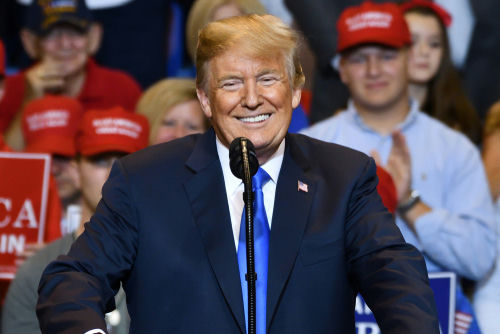The White House has ousted The Wall Street Journal from President Trump’s press pool over a controversial report involving Jeffrey Epstein.
White House Bans WSJ Over Epstein Story
The Wall Street Journal has found itself in hot water with the Trump administration after publishing an incendiary story alleging that President Donald Trump sent a sexually suggestive birthday letter to the notorious Jeffrey Epstein in 2003. The White House, led by Press Secretary Karoline Leavitt, swiftly labeled the report as “fake and defamatory.” In response, the administration removed WSJ reporter Tarini Parti from the press pool for President Trump’s upcoming trip to Scotland. This move is reminiscent of earlier actions by the Trump administration to control narrative and limit negative coverage.
While the WSJ stands by its reporting, the White House’s decision has sparked widespread concern over press freedom and access. The Wall Street Journal, a major player in the media landscape, is now embroiled in a heated battle not just for access, but for the very credibility of its reporting. This incident has exacerbated existing tensions between the Trump administration and segments of the press, particularly following President Trump’s earlier move to strip the White House Correspondents’ Association (WHCA) of its authority to determine press pool access.
Trump’s Legal Battle Against WSJ
Adding fuel to the fire, President Trump has launched a libel lawsuit against The Wall Street Journal, seeking a staggering $20 billion in damages. He claims the birthday letter story is a complete fabrication, designed to tarnish his reputation. This legal move underscores Trump’s notorious approach to handling media criticism—fight fire with fire. The stakes are high, with potential ramifications not only for the WSJ but for the broader media industry. If successful, this lawsuit could set a new precedent for how presidents handle unfavorable media coverage.
🚨 White House kicks the WSJ out of Scotland press pool over their fake Epstein "bombshell"
“Due to the Wall Street Journal’s fake and defamatory conduct, they will not be one of the thirteen outlets on board." pic.twitter.com/kc2pNm5QA4
— TheBlaze (@theblaze) July 21, 2025
The White House Correspondents’ Association has condemned the administration’s actions, arguing they violate First Amendment principles. WHCA President Weijia Jiang stated, “Government retaliation against news outlets based on the content of their reporting should concern all who value free speech and an independent media.” Yet, the White House remains firm in its stance, with Karoline Leavitt stating, “Due to the Wall Street Journal’s fake and defamatory conduct, they will not be one of the thirteen outlets on board.”
Implications for Press Freedom
The exclusion of WSJ from the press pool raises significant concerns about the future of press freedom and journalistic independence in the United States. While the administration argues for diversifying media representation, critics see the move as retaliatory and chilling. It brings to light the delicate balance between government control and media independence—a cornerstone of democratic accountability. The legal battle and ongoing debates will likely shape the future landscape of media-government relations.
🚨 JUST IN: The White House has BOOTED the Wall Street Journal from the press pool for Trump’s trip to Scotland this week
FAFO, @WSJ 🤣 pic.twitter.com/Nj7tYRAxia
— Nick Sortor (@nicksortor) July 21, 2025
Journalists and news organizations face growing uncertainty regarding access and editorial freedom. As the WSJ fights to maintain its place in the press pool, other outlets may benefit from increased diversity. However, this comes at the risk of perceived retaliation and a chilling effect on investigative journalism. The public could ultimately suffer as comprehensive and critical coverage of presidential activities diminishes.
Broader Industry Effects
The repercussions of this incident extend beyond The Wall Street Journal and the Trump administration. The media industry may see shifts in standards for access and reporting, with heightened scrutiny on both government actions and journalistic practices. Legal precedents set by ongoing lawsuits could influence future disputes over press access and defamation, impacting how news organizations operate and how they interact with government entities.
As debates continue, the media landscape faces a critical juncture. The outcome of these legal and public battles will determine how journalistic independence and government accountability coexist in the future. For now, all eyes are on the courts and the unfolding narrative between one of America’s most influential newspapers and its combative president.

